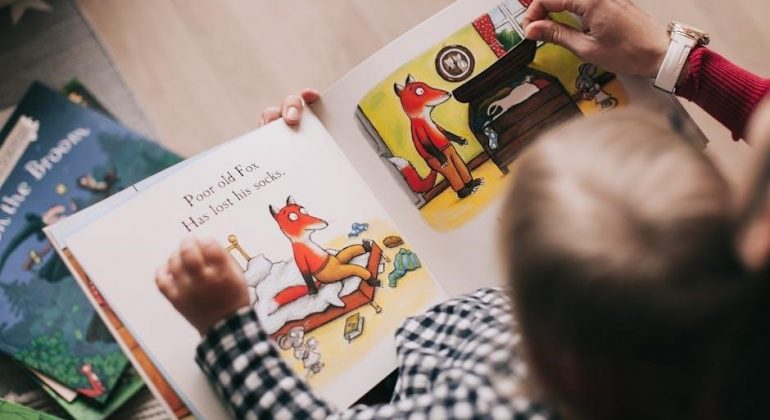Kindergarten Common Core Standards provide a foundation for early learning, focusing on literacy, math, and critical thinking. The PDF guide outlines expectations for skills development, ensuring readiness for future education while fostering a love for learning in young students.
Overview of the Common Core State Standards Initiative
The Common Core State Standards Initiative is a nationwide effort to ensure consistent academic expectations across states. Adopted by 46 states and the District of Columbia, it focuses on English Language Arts (ELA) and Mathematics. The initiative emphasizes critical thinking, problem-solving, and college/career readiness. For kindergarten, standards align with developmental milestones, providing clear goals for early literacy and numeracy. The initiative promotes a back-to-basics approach, ensuring foundational skills are mastered. Resources like the Kindergarten Common Core Standards PDF offer detailed guidelines, helping educators and parents understand expectations. This alignment aims to prepare young learners for future academic success while fostering a love for learning. The initiative also encourages collaboration among educators to refine teaching practices.
Importance of Kindergarten Standards in Early Childhood Education
Kindergarten Common Core Standards play a vital role in early childhood education by establishing a strong academic foundation. These standards ensure young learners develop essential skills in literacy, numeracy, and critical thinking. They foster independence, curiosity, and a love for learning, preparing children for future academic success. The standards emphasize readiness for grade 1 and beyond, focusing on foundational skills like print concepts, counting, and social-emotional development. By aligning with developmental milestones, they support diverse learners, from those needing extra support to advanced students. This framework ensures consistency and equity in education, helping educators and parents guide children toward achieving their full potential. Early mastery of these skills builds confidence and sets the stage for lifelong learning and achievement.

English Language Arts (ELA) Standards for Kindergarten
Kindergarten ELA standards focus on foundational reading, writing, and speaking skills. Students explore print concepts, phonological awareness, and basic writing techniques, building a strong literacy foundation.
Reading: Foundational Skills
Kindergarten students develop foundational reading skills, including print concepts and phonological awareness. They learn to track text from left to right, top to bottom, and page to page. Students identify the front and back of a book, recognize letters, and demonstrate one-to-one correspondence between words and sounds. RF.K.1 emphasizes understanding print organization, such as recognizing words and sentences. Activities include identifying rhyming words and segmenting sounds in spoken words. These skills build a strong base for decoding and reading comprehension. Fine motor skills, like writing letters, are also integrated to enhance reading readiness. The standards ensure students progress from pre-reading to basic reading abilities by the end of kindergarten.
Reading: Literature and Informational Text
Kindergarten students engage with literature and informational texts to build comprehension skills. They learn to identify main characters, settings, and key events in stories. RL.K.1 focuses on retelling narratives and distinguishing between fiction and nonfiction. Students also begin to understand the purpose of text features like headings and illustrations. RI.K.1 introduces comparing and contrasting information from texts. These skills help students develop an early understanding of how texts convey meaning. Activities include reading aloud, discussing stories, and identifying the author’s purpose. The standards aim to foster a love for reading while laying the groundwork for more complex text analysis in higher grades.
Writing Standards
Kindergarten writing standards focus on foundational skills, encouraging students to express ideas through writing. W.K.1 emphasizes composing texts using a combination of drawing, dictating, and writing. Students learn to write their name, uppercase and lowercase letters, and short sentences. W.K.2 involves writing to convey a message, such as labeling pictures or writing simple stories. Fine motor skills are developed through tracing, cutting, and writing with various tools. The standards also encourage students to use writing to describe pictures or events, fostering creativity and communication; These skills build confidence and prepare students for more structured writing in higher grades. Regular practice with age-appropriate activities helps meet these benchmarks effectively.
Speaking and Listening Skills
Speaking and listening skills in kindergarten focus on effective communication and active participation. SL.K.1 encourages students to engage in collaborative conversations, sharing ideas and responding to others. SL.K.2 involves retelling stories or events, demonstrating comprehension of the sequence. SL.K.3 emphasizes speaking clearly for others to understand, using formal English when appropriate. These standards help students develop verbal communication, fostering confidence in expressing thoughts. Activities like group discussions and role-playing enhance these skills. Teachers encourage active listening by modeling attentive behaviors and creating opportunities for student interaction. These foundational skills prepare kindergartners for more complex communication tasks in later grades, building a strong base for social and academic success.

Mathematics Standards for Kindergarten
Kindergarten math standards focus on counting, cardinality, and basic operations. Students explore numbers, shapes, and measurement, building a foundation for problem-solving and mathematical reasoning skills.
Counting and Cardinality
Counting and cardinality standards in kindergarten focus on foundational number concepts. Students learn to count to 100 by ones and tens, demonstrate one-to-one correspondence, and identify numbers up to 20. They understand the relationship between numbers and quantities, comparing amounts using vocabulary like “more,” “less,” and “equal.” These skills help build a strong mathematical foundation, preparing students for basic operations and problem-solving in later grades. Activities include counting objects, identifying numbers in their environment, and engaging in hands-on tasks to develop number sense. Mastery of these concepts is essential for future math success and critical thinking.
Operations and Algebraic Thinking
In kindergarten, operations and algebraic thinking involve solving simple addition and subtraction problems using objects or drawings. Students demonstrate an understanding of “putting together and taking apart” concepts. They identify “how many” in a set and create simple equations using objects or numbers. Activities include counting to solve problems, using fingers or toys to represent quantities, and understanding basic notation like “+” and “-.” These foundational skills introduce students to mathematical reasoning and problem-solving. By exploring patterns and relationships, kindergartners build a conceptual understanding of math, preparing them for more complex algebraic thinking in later grades. Play-based learning and visual aids enhance their grasp of these essential math concepts.
Geometry
Kindergarten geometry standards introduce basic shape recognition and spatial awareness. Students identify and name common shapes like squares, circles, triangles, and rectangles. They explore shapes in real-world objects, describing their features and comparing sizes. Activities involve sorting objects based on shape and creating simple shapes using various materials. Understanding basic geometry concepts lays the groundwork for more complex math skills. Hands-on experiences and visual aids help kindergartners develop their spatial reasoning and problem-solving abilities. These foundational skills prepare students to recognize and analyze shapes in their environment, fostering a strong math foundation for future learning.

Implementation of Common Core Standards in Kindergarten
Implementation involves aligning curriculum with Common Core goals, providing teacher training, and using age-appropriate activities to meet standards while fostering young learners’ natural curiosity and creativity.
Challenges in Implementing the Standards
Implementing Common Core Standards in kindergarten poses challenges, including concerns about rigor and developmental appropriateness. Some educators argue that the standards, particularly in reading, may be too demanding for young learners, potentially stifling creativity and play-based learning. Additionally, aligning assessments with standards can be complex, requiring significant training for teachers. The transition to standards-based report cards also presents challenges, as it shifts focus from traditional grading methods. Furthermore, balancing academics with social-emotional development remains a concern, as the standards emphasize specific skills that may not align with all children’s developmental timelines. These challenges highlight the need for flexible implementation strategies and ongoing teacher support to ensure young students thrive academically and emotionally.
Role of Teachers in Delivering Common Core Curriculum
Teachers play a pivotal role in delivering the Common Core curriculum in kindergarten, adapting standards to meet the diverse needs of young learners. They create engaging lessons that foster foundational skills in literacy and math, ensuring activities align with developmental milestones. By using materials like the Kindergarten Common Core Standards PDF, educators guide students in mastering print concepts, one-to-one correspondence, and basic math operations. Teachers also encourage participation in shared reading, writing workshops, and structured discussions, helping students build confidence and critical thinking. Their role extends to assessing progress, providing feedback, and creating a supportive learning environment that nurtures both academic and social growth, laying a strong foundation for future success.

Assessment and Evaluation
Assessment measures students’ progress toward mastering Common Core Standards, ensuring alignment with learning goals. Evaluations include observations, quizzes, and projects, providing insights into skill development and understanding;
Standards-Based Report Cards
Standards-based report cards align with Common Core Standards, providing detailed feedback on students’ mastery of specific skills. These reports focus on individual progress, highlighting strengths and areas for improvement. Parents receive clear insights into their child’s understanding of literacy and math skills, such as print concepts and counting. The reports also include goals for future learning, ensuring everyone is on the same page. This approach helps teachers, parents, and students work together to support educational growth effectively.

Aligning Assessments with Common Core Standards
Assessments for kindergarten are designed to align closely with Common Core Standards, ensuring accurate measurement of skill mastery. These evaluations focus on foundational skills in reading, writing, and math, such as print concepts and counting. Teachers use observation, portfolios, and short quizzes to gather data. The results help identify where students may need additional support or enrichment. By aligning assessments with standards, educators ensure instruction is targeted and effective, fostering a strong academic foundation for young learners. This approach promotes consistency and clarity in measuring student progress toward achieving the intended learning goals.

Resources for Parents and Educators
Downloadable PDF guides, educational workbooks, and interactive tools align with Common Core standards, offering structured activities and support for teaching and reinforcing kindergarten skills effectively.
Understanding the Common Core Standards Document (PDF)
The Kindergarten Common Core Standards PDF is a comprehensive guide outlining expectations for English Language Arts (ELA) and Mathematics. It includes detailed standards for Reading: Foundational Skills, such as print concepts and phonological awareness, and Mathematics, focusing on counting, geometry, and algebraic thinking. The document provides clear benchmarks for skills like writing, speaking, and listening, ensuring a strong academic foundation. Parents and educators can use this resource to align teaching methods with curriculum goals, fostering student growth and readiness for higher grades. The PDF also offers insights into assessment strategies and tools, making it an essential reference for understanding and implementing the standards effectively.
Tools and Workbooks for Kindergarten
Kindergarten Common Core workbooks and tools are designed to align with the standards, offering structured activities for English Language Arts and Mathematics. These resources, such as “Your Total Solution for Kindergarten Workbook,” provide practice in foundational reading skills, writing, and math concepts. They often include hands-on exercises and engaging tasks to make learning interactive. Many workbooks are tailored to reinforce specific standards, like print concepts or counting skills, ensuring a strong academic foundation. Parents and educators can use these tools to supplement classroom instruction or support home learning. Additionally, some workbooks serve as review materials for first grade, helping to bridge the transition between kindergarten and early elementary education effectively.
